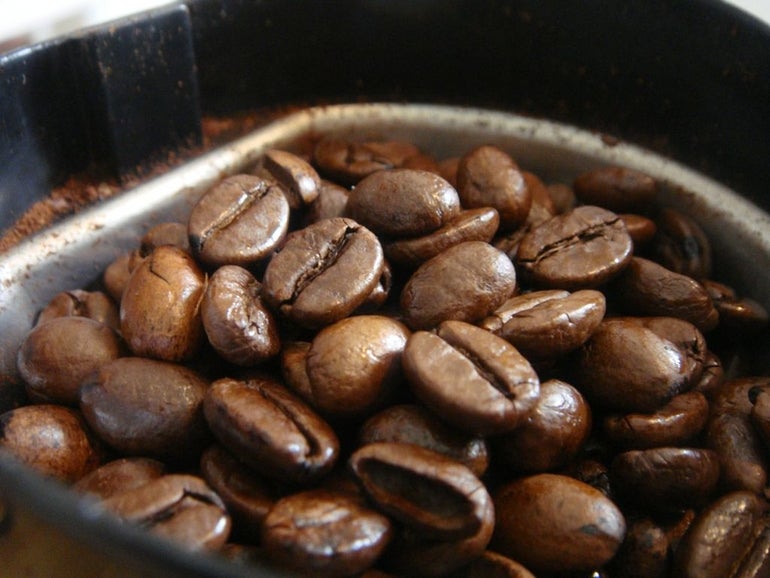Coffee roaster builds sustainable success
 Courtesy/Flickr/olle svensson
Courtesy/Flickr/olle svensson
Dean Cycon wanted to find a way to have a coffee company that was profitable but also made a difference in the lives of its farmers. His company, Dean’s Beans in Orange, is committed to improving the lives of its farmers through training, fair wages and long-term reforestation projects.
Cycon spoke about traveling around the world, making recyclable products, and the impact of climate change on the villages he partners with.
Why did you want to start this company?
I started Dean’s Beans very specifically, because in 1988, I cofounded the first nonprofit development organization in the coffee world, called Coffee Kids. I went to all these villages around the world and met with coffee farmers. It was good charity, but over time, I saw it wasn't making a significant difference in the lives of the farmers, because until coffee companies paid more money, nothing was really changing.
I thought, "What would it look like if I started a company that made real money for the farmers? Could I do that and still be profitable? Can I get involved in developmental needs for communities and still be profitable?" Twenty four years later and the answer is a resounding, "Yes."
How do you do that?
The coffee industry is ridiculously profitable. People have no idea what the structure of the chain value of coffee is, but back in the 1970s, according to a report from the United Nations, the ratio between what a farmer got paid and what I got paid as a roaster was 3:1. If we paid the farmer $1, we sold the coffee for $3. That relationship is now 10:1 or 20:1, depending on the roaster. People are charging ridiculously higher amounts now. Ordinary coffee is going for $20 a pint online, or more. And I just find that to be reprehensible. We’re not paying the farmers any more.
You have a huge amount of money to play with if your value set is more than making profit. We pay some of the highest prices in coffee to the farmers, at low costs to consumers. We fund development projects for every community we’re in, and people at Dean’s Beans have really great benefits, and with all that, we’re still profitable. And of course the market rewards them because they’re profitable.
How often do you travel to see your farmers?
So far this year, I've been to Nicaragua, Mexico, Guatemala and Peru. I ordinarily travel four to five times a year, but this year I’ve gone 11 or 12 times.
Why such a big increase?
Climate change has had such a profound impact over the last few years on coffee villages that the need to up our commitment and come up with innovative ways requires us to be on the ground more. As an example, we’ve had reforestation going on in Peru for 12 years. While I was there we made it even better, and we consider how we can use it to support farmers’ income stream as well. So the meetings are always about how we improve relationships and projects, and for me it’s the most exciting part of the work.
Who do you sell to?
We sell to food co-ops, small cafes, Whole Foods, and businesses all over the country, but primarily in New England, the Mid-Atlantic, and to Pennsylvania and Ohio. About a third of our business is on the web. We sell well over $1 million in coffee every year, and that’s a big deal because we charge $9.60 online. That’s a lot of bags going out..
We also have recyclable cups for a Keurig machine. Keurig and Green Mountain Coffee refuse to make recyclable pods. For over a decade I've been talking to them about going recyclable. They refuse because they don't want to lose that extra half a cent. So we decided, "Oh heck, let's do what we always do, model instead of talk." We’ve had recyclable cups, for about a year and a half now.
How many countries are you in?
We’re in 11 countries right now, and we grow about 8-10 percent every year like clockwork. I'm in no hurry to grow the business because it has nice trajectory of growth that allows us to have a special company culture. I’m trying to model how a business can be successful and a good citizen at the same time.
We’ve helped people found their own coffee companies in the model. I’m happy the seed of what we do has spread by other people mimicking our business model and learning lessons from us.
Why does your model work?
The unique thing about our development projects, because in the developing world, projects last generally about three years and then fall apart. That's why over the last few years we've put trillions into development. But the projects are really not meant for long-term viability. We have a different model here where we train people in villages to run projects themselves. We don't need to bring in large nonprofits. People have a sense of ownership over their work.
That's one of the reasons our projects are so long. The reforestation project is in its 13th year. We think we really have a good handle on how to effectively make development be meaningful. We pay people more money for the coffee and provide training. When people are given resources and a sense of self esteem, they are more likely to be successful.
With nonprofits, when they decide that it’s time to leave an area, they forget about you. That doesn't build a good sense of community, or give communities a good sense of how to overcome problems without these people. Communities are better when they can grow on their own.
This interview was conducted and edited for length and clarity by Laura Finaldi, WBJ staff writer.









0 Comments